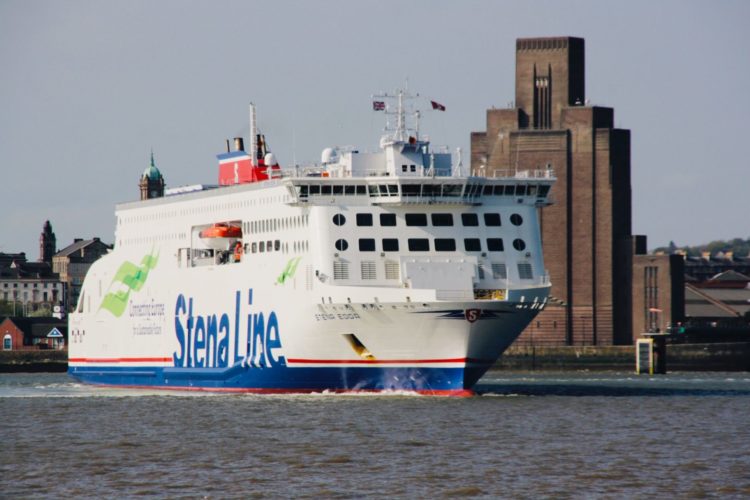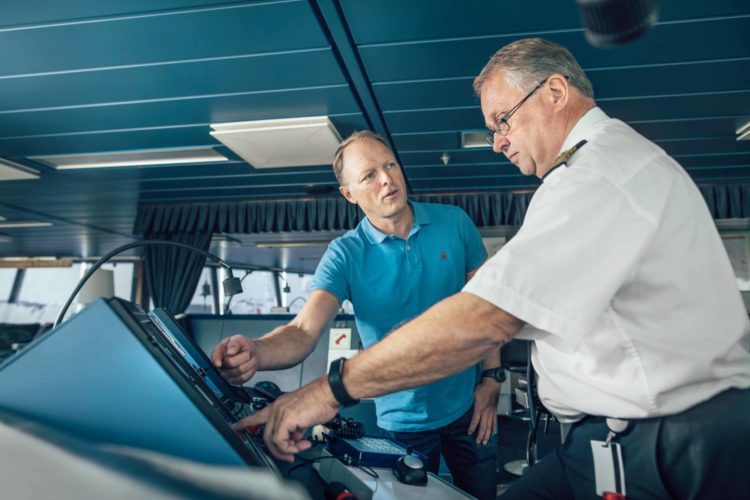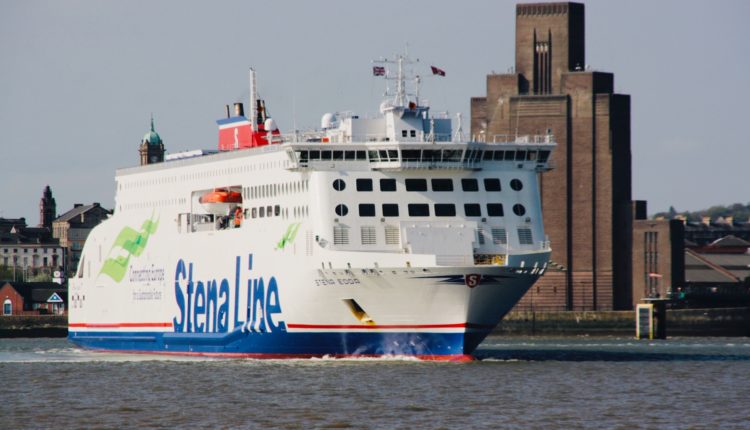‘AI sir!’… Artificial intelligence comes to Stena’s Mersey fleet
Swedish ferry operator Stena Line is to install ‘AI captains’ on its Birkenhead to Belfast ferry service to help cut fuel consumption on its vessels. Tony McDonough reports

Stena ferries sailing between Birkenhead and Belfast will use ‘AI captains’ to help their vessels navigate currents and find the most fuel efficient routes.
In 2019, the Swedish company collaborated with electronics giant Hitachi to trial artificial intelligence (AI) technology to help it meet its carbon reduction ambitions. The trial was a success and the AI is now being rolled out across its European fleet.
In the past 12 months, Stena has introduced two new vessels, Stena Edda and Stena Embla, onto its route between the Twelve Quays terminal in Birkenhead on the Mersey and Belfast.
They are among Stena’s new generation of E-Flexer ferries which have the capacity to carry 1 000 passengers, 120 cars and 3,100 lane metres of freight. They will increase freight capacity on the Birkenhead to Belfast route by 20% and have replaced Stena Mersey and Stena Lagan.
Now both vessels, which together make up to two return crossings a day on the route, will be equipped with the new AI captains. The roll-out has been delayed by COVID-19 but is expected to happen in the coming months”
The technology will assist the actual captain and the crew to assess a myriad of variables that determine how much fuel is used, including currents, weather conditions, shallow water and speed through water.

As skilled as the captains and crews are, making such calculations taking into account the different combinations is impossible to do manually. Stena hope the technology will reduce its annual fuel consumption by 2.5%.
The successful pilot project was carried out on Stena Scandinavica, under the supervision of Senior Master Jan Sjöström who has been working with fuel optimisation at Stena Line for the last 40 years. Her said: “Since we are helping the AI to evolve, this is a very exciting and rewarding process.”
Lars Carlsson, head of AI at Stena Line, added: “The model simulates many different scenarios before suggesting the most optimal route and performance setup.
Much of the technology needed to reduce emissions in shipping already exists. The European Commission estimated that the industry could cut 75% of its emissions alone with existing technology.
The industry has been successful in cutting emissions by redesigning hulls and propellers to reduce drag. In the past five years many ships’ propellers have been fitted with “tip fins”, a redesigned propeller which significantly improves performance.
Mr Sjöström explained further: “Planning a trip and handling a vessel in a safe and, at the same time, fuel efficient way is craftsmanship. Practice makes perfect, but when assisted by AI a new captain or officer could learn how to fuel optimise quicker. In return, this contributes to a more sustainable journey.”

